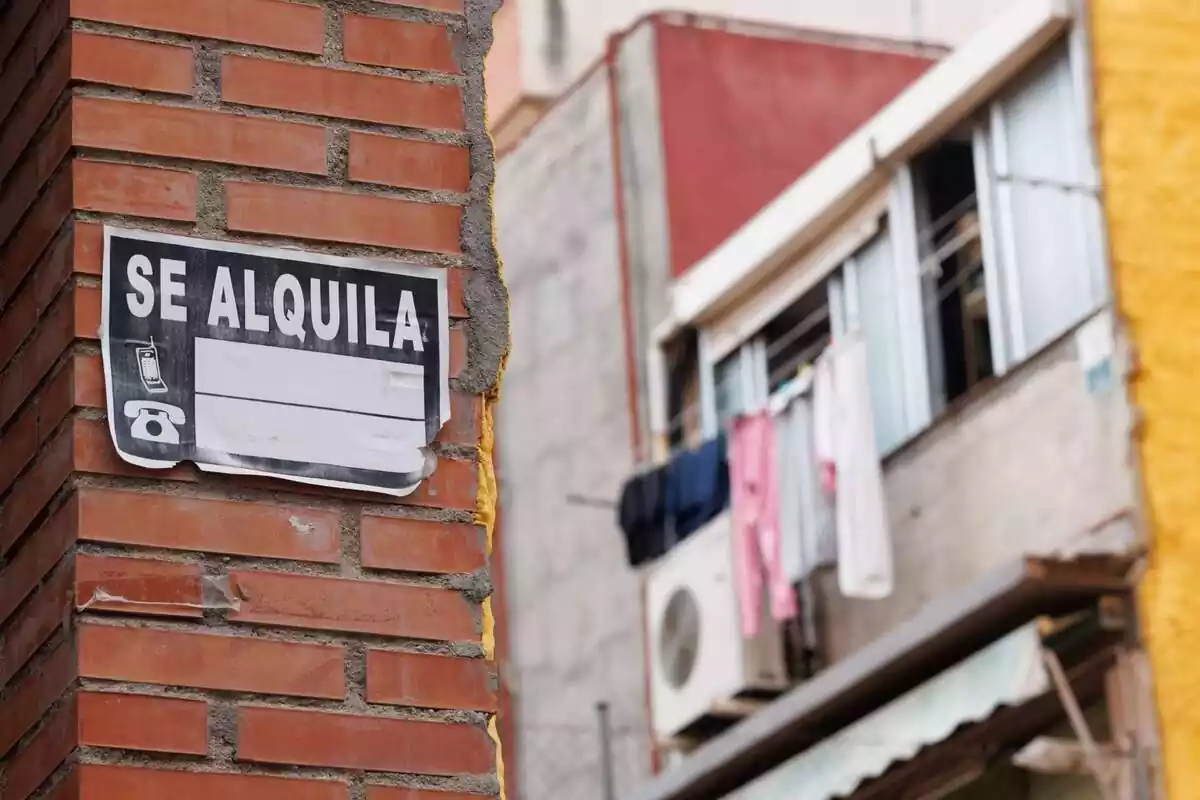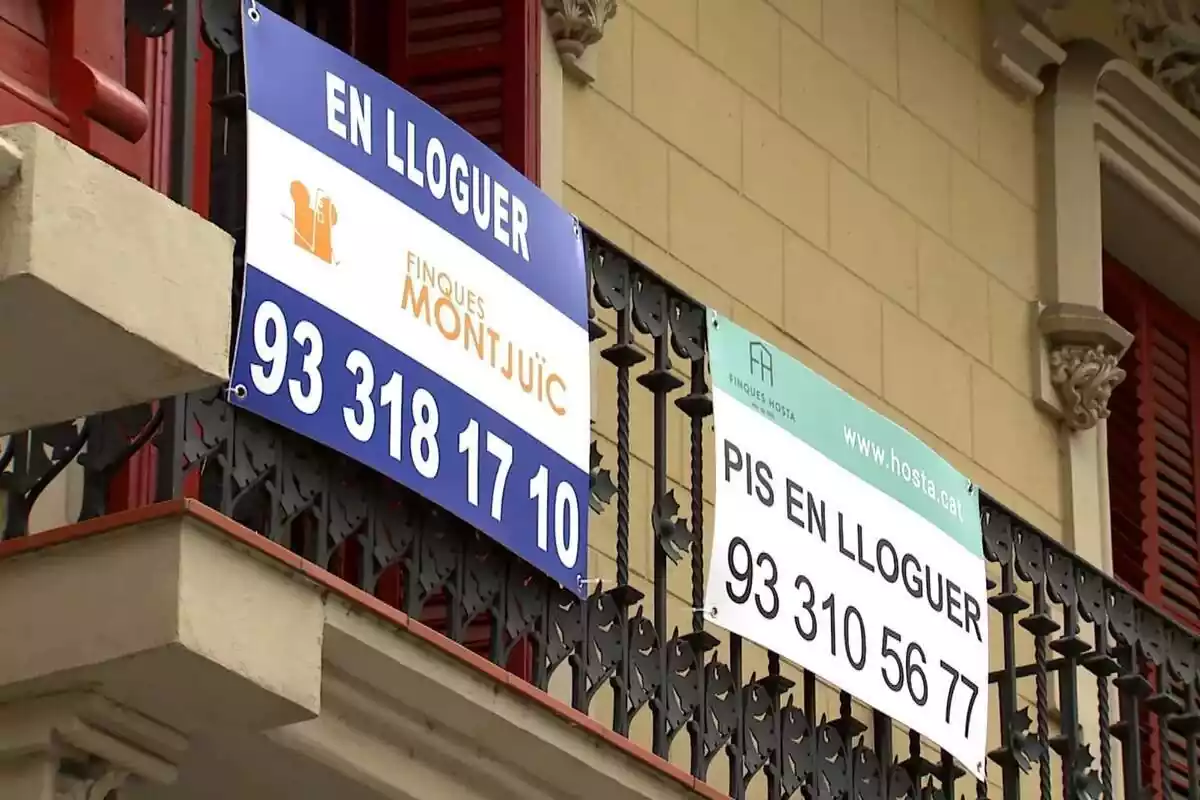
Guide to navigating the real estate collapse in Catalonia
Black market, regulatory spiral, social tensions, and a political sinkhole: housing is the great burden
Having reached where we have, the fact that housing is inaccessible is now the least of our concerns. What is relevant now is that the real estate problem has infiltrated the social, economic, and political structure like a termite. The problem, therefore, advances and mutates, taking on very uncertain forms.
This makes a general analysis necessary that goes beyond a type of news that is already sadly monotonous. We refer, of course, to the fact that housing prices keep rising. The latest data, for example, indicate that rent has increased another 14% in Spain, with Barcelona, of course, leading with almost five euros per square meter more expensive than Madrid:
This indicates that the real estate problem has taken on a life of its own. To understand its full extent, we now conduct an analysis with its five most prominent aspects. This way, with a general picture, we observe a social reality that predicts a very complicated future and, moreover, one that has no solution.

First: What has happened?
First of all, it is necessary to understand why housing is so extremely expensive. As explained in E-Notícies on many occasions, the problem is more linked to an excess of demand than to a lack of supply. This latter point notwithstanding, since 2008, financial regulation has led the real estate sector to offer much less supply.
But the original problem, unlike what the subsidized press has been saying, is one of demand. On closer inspection, this is nothing new. On the contrary, it is another manifestation of the social factor that truly changes everything: demography.
In addition to having gained a lot of immigrant population, ranging from qualified 'expats' to people from poor countries without productive additions, this population tends to concentrate. This is the downside of globalism, which allows mobility by choice, and of an economic model that needs cheap labor. In summary, it is the service sector taken to its maximum expression.
This can't be considered a radical analysis since the Bank of Spain has admitted it (in addition to various analysis houses). In its 2023 economic report, the BdE was perfectly clear on this matter. "There is a strong positive correlation between population growth and the rise in purchase and rental prices from the beginning of the economic recovery in 2014 until 2022." (...). "The demographic growth experienced since 2016 is an essential factor in explaining the increase in demand for residential housing both for rent and ownership."

The four derivatives of the issue
Keeping in mind the essential cause of the problem, we can now analyze the four factors that predict a collapse, first economic, and then social.
1. Black market
This has also been explained in E-Notícies: regulatory interventionism on a market saturated with demand leads to the black market. Even more so with a fairly inelastic good (that is, one that is difficult to do without), such as housing. People need a place to live and, consequently, have to conform to the informal dynamics of the market.
It is important to highlight that a black market can be relative or partial, meaning it doesn't have to be a nest of organized crime. It is enough for there to be increasingly informal dynamics. We have already started to see this in Catalonia with the falsification of contracts, payrolls, work histories, etc. Naturally, this only adds uncertainty for property owners, who either withdraw from the market or reinforce informal controls.
2. Taxation and interventionist spiral
Illa's fiscal plan is 'de facto' a tax increase on housing in several of its forms. More brackets for property transfers are created, a tax for purchasing entire buildings, or an increase in the tourist tax. These are some of the new sources of income for the PSC's Govern for its "shared prosperity" plan.
As is also natural, this is a type of indirect interventionism on the housing market, even if it has a fiscal face. In fact, it can be considered another advance in the interventionist spiral that the housing market has entered. This spiral is the result of an agonizing market and the need for parties to 'do something.'
In Catalonia, we can consider ourselves champions of regulation. In a market saturated with demand and harassed by interventionism, the market adapts to the different legal gaps for the simple reason that the market is much more agile than regulation. But this was also written: from regulating residential rent, we have moved to temporary and now to room rentals.

3. The street heats up and the left knows it
The street doesn't understand economic analysis or long-term plans, even less so with necessary economic goods. This causes an increase in latent tension, which begins to express itself in the form of demonstrations and the proliferation of semi-political entities that channel that tension. Catalonia is also paradigmatic in this sense, with the most radical and opportunistic housing unions in Spain.
This aligns with the current and desperate need for the Catalan left to cling to some problem to reverse its electoral decline. For this reason, the Comuns and the CUP infiltrate the street through the Tenants' Union and the Socialist Union. The proof of this attempt at political capitalization is that, in the usual tradition of the left, fights and tensions among them are the order of the day.
For the moment, they are internal fights with no effective significance. However, these unions play with a weapon that could truly turn the market upside down. We are talking about a general rent strike, which would be the ultimate supply shock to zombify the real estate market.

4. Social and political sinkhole
That GDP rises is irrelevant to the extent that GDP per capita stagnates; in some cases, such as that of young people, the situation is directly dramatic. This is the effect of the loss of purchasing power, that is, inflation. And, in this rise of inflation, the main culprit is the price of housing.
We are talking about the fact that inaccessible housing - and more so in a country with Spain's financial habits - is the almost definitive sentence of lack of capitalization, that is, of savings. Without accessing property and doomed to an unsustainable rental market, the bulk of citizens do not capitalize on their work. We are facing the feed that nourishes the monster of social and, above all, intergenerational inequality.
When this point joins with the previous one (tensions in the street), a focus of social polarization is observed. In partitocratic contexts like ours, this polarization translates into more radical parties. As a prediction, it can be suspected that the left will increasingly flirt with radical ideas, such as expropriation.
More posts: